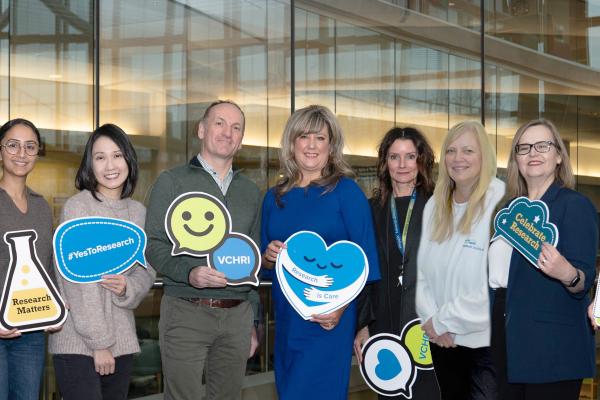
Research suggests hospice care for children with life-threatening illnesses costs less than hospital care.
Caring for a child with a life-threatening condition is an experience that no parent should go through alone. Paediatric palliative care programs (PPCPs) provide a holistic approach to such care and allow for entire families to stay together with their sick child without having to worry about limited visiting hours, or costs for accommodations or meals.
Tania Conte, research coordinator at the Centre for Clinical Epidemiology and Evaluation, recently completed a cost-analysis project of PPCPs, like the one offered at Canuck Place Children’s Hospice in Vancouver.

Conte completed a first-of-its-kind systematic literature review to see how other researchers have studied inpatient health care utilization and costs among children with life-threatening conditions who have accessed a PPCP and those who have not. The review, which was recently published in the Canadian Medical Association Open Access Journal, provides a first step toward more comprehensive understanding of the impact of PPCPs on resource utilization across various health care settings.
“Hospice care is not more expensive than hospital care, contrary to what we believed before,” says Conte. “Depending on the health care system, a PPCP may increase costs, but in the Canadian context, they may be cost saving.”
“Right now, every time the child gets inpatient care at the hospice, in theory, hospital costs are avoided.”
Conte’s findings revealed that before being referred, the children who ended up in the paediatric palliative care program were already more severely sick and receiving intense, more costly treatments in the health care system compared to similar children who were not referred.
“In the literature, not all of the population with incurable diseases were referred to a PPCP,” Conte explains. “Further research is needed to find the differences and motives as to why more families are not having palliative care recommended to them.”
New, reliable, comparable data can inform policy around PPCP funding

Conte’s project also helped to apply measuring tools for more reliable data that hospitals and hospices can use to more accurately measure and compare their costs and utilization.
“Our research can help inform policy in B.C. to rethink how paediatric palliative care is funded,” says Conte. “Right now, B.C. only funds about 25% of hospice care, which automatically impacts costs in hospitals.
"Increasing funding to PPCPs would make more hospital beds available for treating kids with non-life threatening conditions.”


